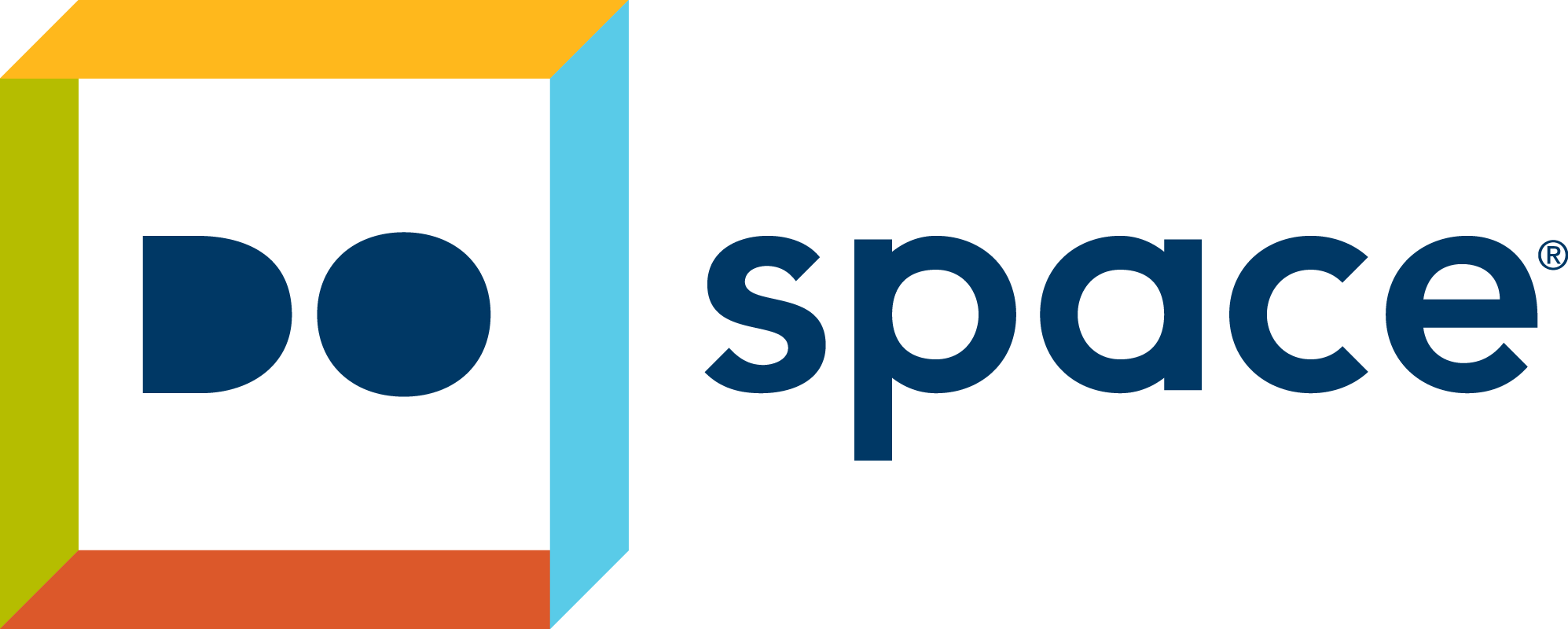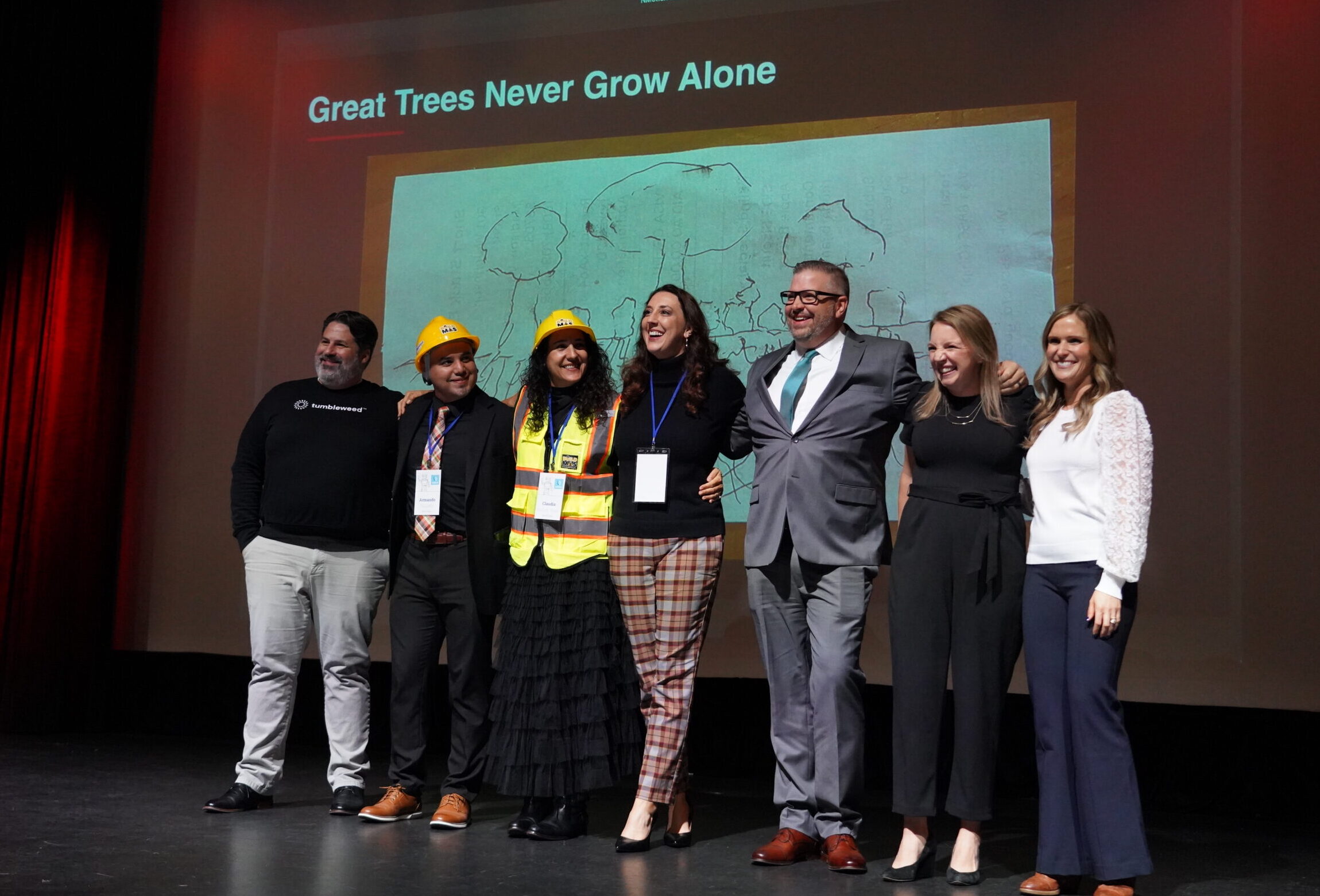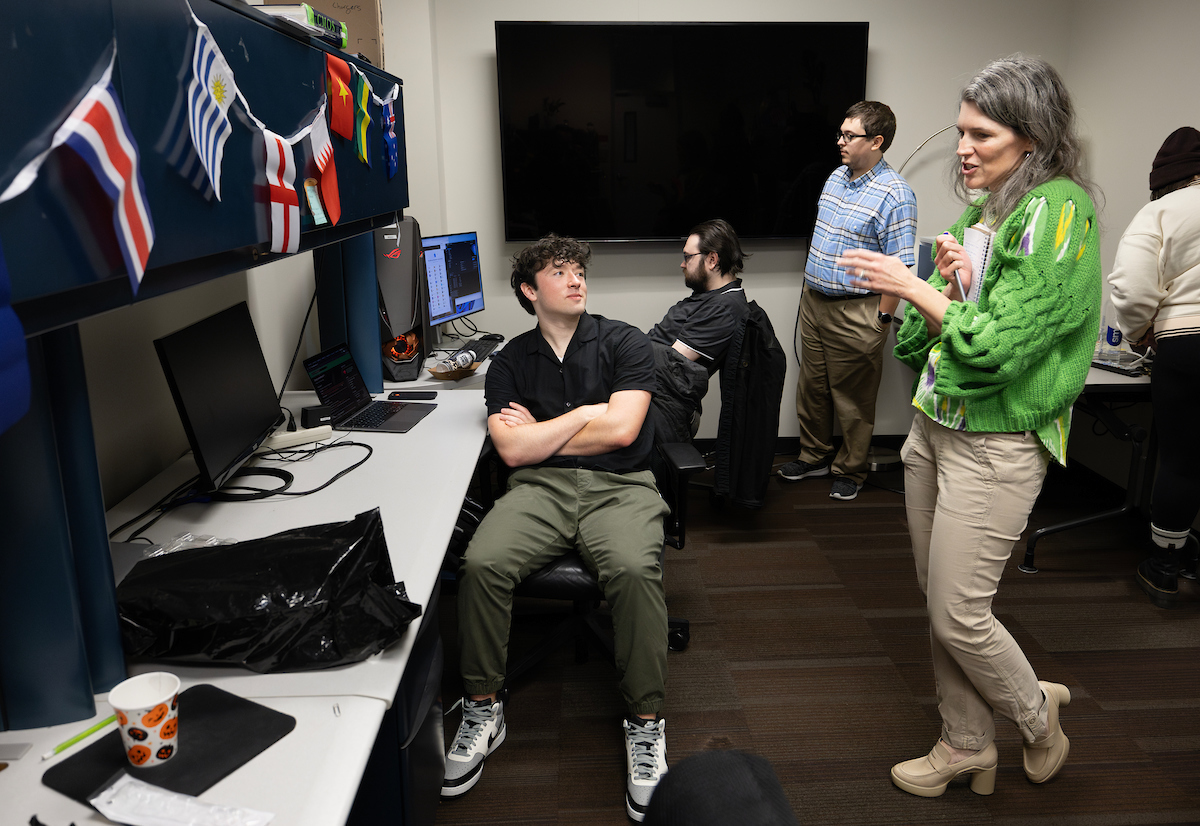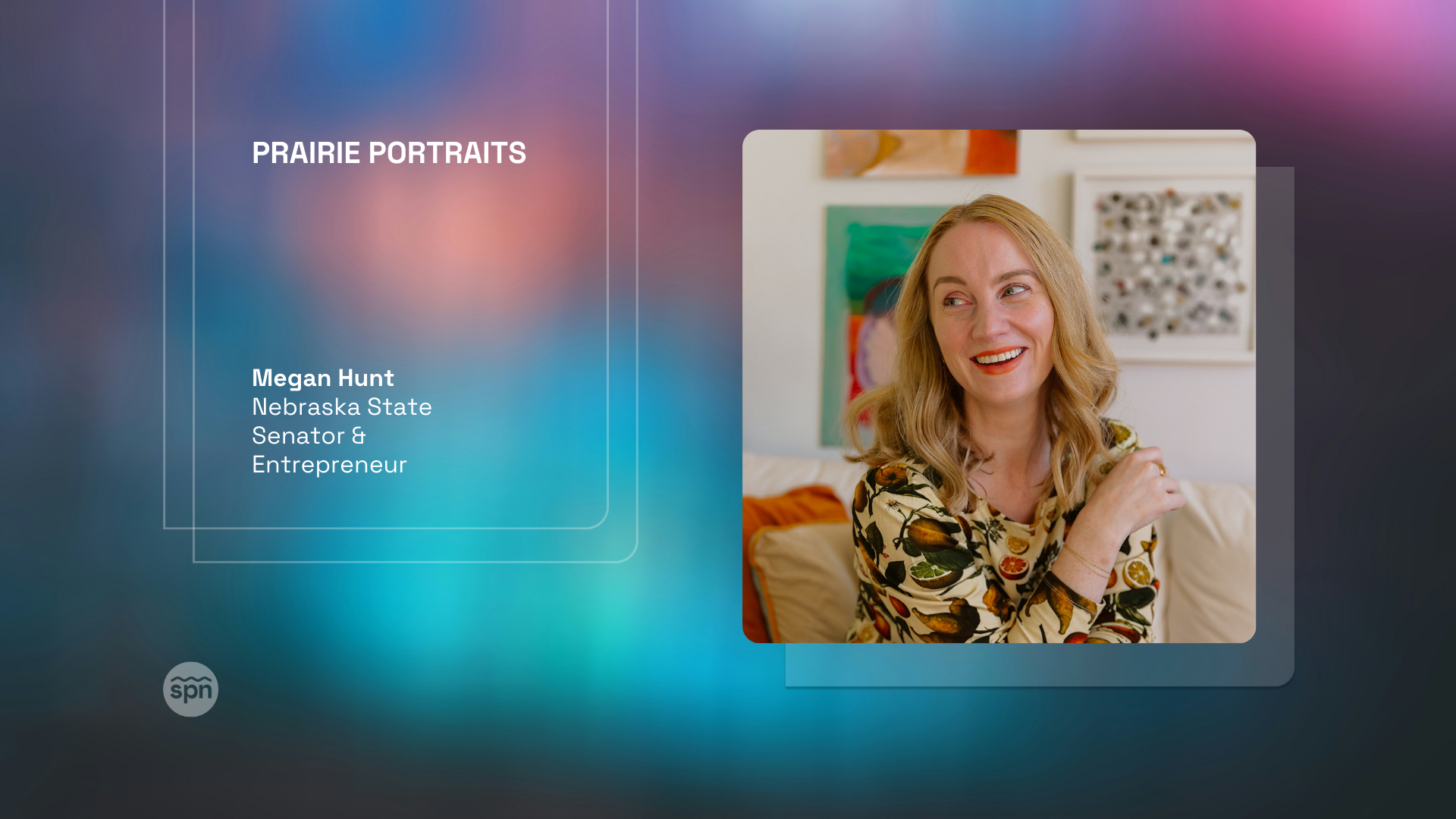The Handprint team (from left)—Derek Caneja, Alexa Nguyen, Jack Franzen and Mike Demarais—poses in front of the Fiberhouse in the Kansas City Startup Village.
 Handprint, a 3D printing software startup, recently put down roots in Brad Feld‘s Fiberhouse in Kansas City Startup Village, but how did the four-person team land here and why did the Boulder, Colo.-based investor choose them?
Handprint, a 3D printing software startup, recently put down roots in Brad Feld‘s Fiberhouse in Kansas City Startup Village, but how did the four-person team land here and why did the Boulder, Colo.-based investor choose them?
The team—Mike Demarais, Alexa Nguyen, Jack Franzen and Derek Caneja—initially met in Boston. Its presence in Kansas City began last October when co-founder Demarais became the first resident of Ben Barreth‘s Home for Hackers, a program giving three months of free rent to entrepreneurs wanting to check out Google Fiber. At that time, he and Caneja were working on a side project, Handprint.
When the Home for Hackers time ran out, Demarais went back to Boston and gathered his team for a trip to Kansas City in late January. On that return visit, Demarais was sold on starting Handprint in Kansas City.
“I realized what Kansas City is offering right now,” he said. “We want to be part of a really young community. There are a lot of opportunities for our voices to be heard in government, corporations. We think of Kansas City as a microcosm of the change in America.”
With a little in savings from time at other startups, some help from parents and contract jobs, Handprint moved to Kansas City, Kan., landing just a few blocks from Feld’s future Fiberhouse. There, while struggling with poor a Internet connection, they submitted a last-minute Fiberhouse application. In mid-April, they won the competition, earning a year of rent-free, Fiber-linked living. The startup didn’t have to give up equity to accept the prize.
“I’m completely fascinated and impressed with 3D printing,” Feld (right) recently told Silicon Prairie News in an email interview. In 2011, his venture capital firm led a $10 million funding round in 3D printer manufacturer MakerBot.
“I have a good understanding of the software technology around this and think Handprint is going after a very complex part of the problem. By approaching it as a cloud service, there will be huge bandwidth (upload/download) requirements.”
“Handprint is going after a very complex part of the problem.”
– Brad Feld
For Demarais and the team, it was an easy decision to enter the competition. They knew of Feld’s interest and believe “he shares the same vision of getting 3D printers into homes,” Demarais said.
Before they can do that, they’re spending the next month polishing their product before targeted testing by children and the elderly through partnerships with schools, libraries and more. The startup’s software aims to make the user experience and interface simple for anyone who wants to create a 3D-printed product. They wouldn’t go into much more detail as they believe they are onto something big, with the “potential to be in millions of homes,” Demarais said.
Feld will be right there with them in an open-ended mentorship as the year goes along. And when the year ends, he said he doesn’t have concrete plans in place.
“There is nothing structured—my goal is to be supportive in whatever way is useful to them,” Feld said. “This is an experiment—we’ll see how the first year goes.”
Credits: Photo by Fred Bauters. Brad Feld photo courtesy of Feld.






One response to “How Handprint landed in KC and won free rent in Feld’s Fiberhouse”
[…] far we’ve had two different companies live/work in the FiberHouse. HandPrint spend the first year in the house and LeapIt spent the second […]